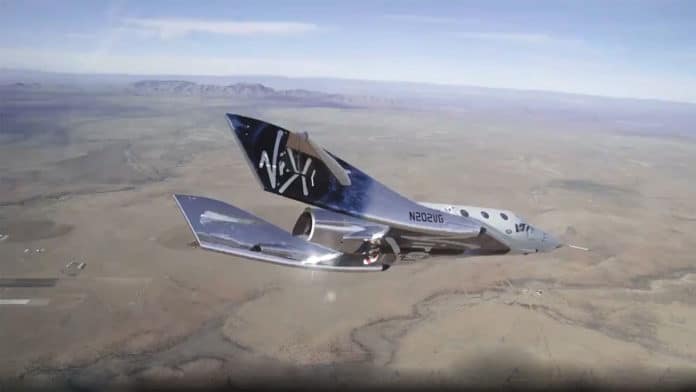Virgin Galactic, one of the initiatives that will open the doors of space tourism, announced that its latest major spacecraft test involving SpaceShipTwo Unity brought to a premature end. The test could not be completed because the rocket motor didn’t ignite during the test flight, which took off from the company’s Spaceport America headquarters in New Mexico.
The VMS Eve mothership lifted off from the runway as planned with SpaceShipTwo Unity fixed to its wing and dropped Unity at an altitude of about 50,000 feet (15,000 meters). However, moments after Unity detached from its mothership, the ignition sequence for the rocket motor did not complete, according to a tweet from Virgin Galactic.
Virgin Galactic announced that thanks to SpaceShipTwo’s support engines, the spacecraft landed safely on the ground, and the crew members were in good condition. The test flight was intended to be the first rocket-powered flight of SpaceShipTwo Unity from its new base.
With the investigation initiated by Virgin Galactic engineers, the cause of the failure was found in a short time. Authorities said the problem was caused by the communication loss between the rocket engine in the spacecraft and the computer that controlled it. The breakdown safety system, which was activated, canceled the firing process of the rocket engine due to the problem in question.
The Virgin Galactic team, which will examine the details of the connectivity problem at SpaceShipTwo, said the spacecraft would soon meet the sky again. The test was the first manned trial of Virgin Galactic from Spaceport America headquarters in New Mexico.
